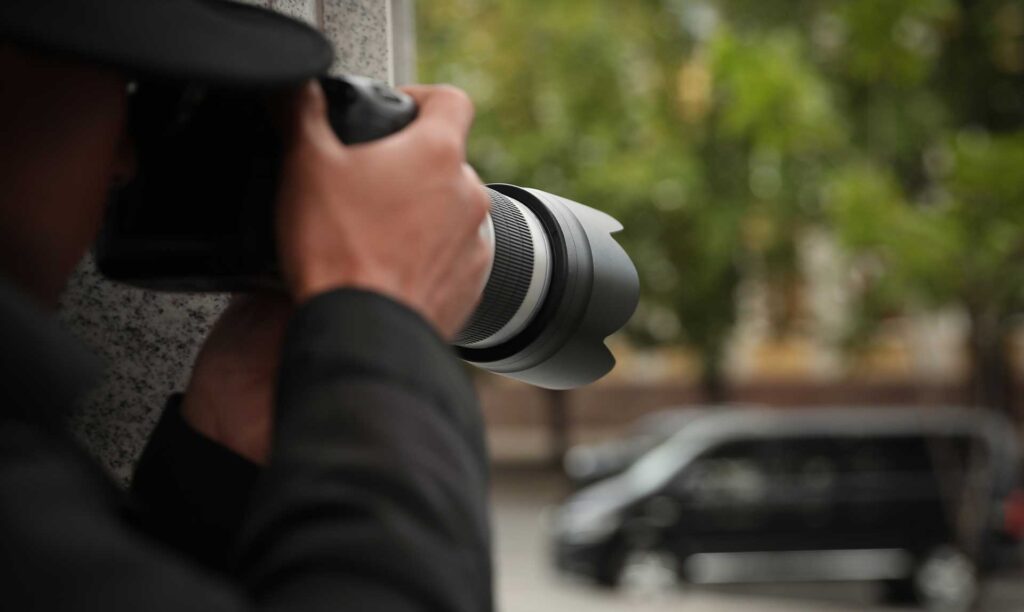When it comes to hiring a private investigator, especially for something as sensitive as a suspected cheating partner, understanding the legal boundaries is essential. Many people are curious about what a private investigator can actually do to gather evidence in the UK—and, perhaps more importantly, what they absolutely cannot do. Let’s go through the dos and don’ts for private investigators in the UK, so you know what to expect and stay on the right side of the law.
What a Private Investigator Can Legally Do
Conduct Surveillance
Private investigators can conduct surveillance on individuals in public spaces. This includes observing and photographing people in locations where there is no expectation of privacy, like parks, streets, or restaurants. Surveillance can be one of the most effective ways to gather evidence of infidelity, as long as it stays within the public domain. However, it’s important to know that an investigator for cheating partner or other investigations is bound by privacy laws and must respect boundaries when it comes to private property.
Gather Evidence in Public Spaces
In public spaces, private investigators can document an individual’s actions, take photographs, and record videos without infringing on privacy laws. This means that if someone is meeting up with another person in a coffee shop or attending an event, an investigator can legally gather evidence in these open areas. As long as they aren’t breaching anyone’s privacy, this type of surveillance is completely above board.
Use Public Records and Online Research
UK private investigators often use public databases and online resources to gather background information. They can look up financial records, property ownership, and even social media profiles as long as this information is publicly accessible. This type of research is invaluable, as it can provide a clearer picture of an individual’s history and activities without crossing legal lines.
What a Private Investigator Cannot Legally Do
Trespass on Private Property
Private investigators cannot legally enter private property without the owner’s permission. Trespassing is a serious offence in the UK, and any evidence gathered while trespassing would not only be inadmissible but could lead to legal consequences. Investigators must keep to public areas or obtain permission if they need access to private premises.
Hack into Digital Accounts or Devices
It’s illegal for a private investigator to hack into anyone’s personal accounts, such as emails, social media profiles, or mobile phones. Digital intrusion of this kind is a clear violation of privacy laws, and any evidence obtained in this way would be both illegal and unethical. Skilled investigators use only legal methods to gather information and avoid any techniques that would infringe on an individual’s digital privacy.
Use GPS Tracking Without Consent
While GPS trackers might seem like a straightforward way to keep tabs on someone’s movements, private investigators cannot legally place a tracking device on someone’s vehicle or belongings without their consent. Doing so would violate privacy laws. Instead, investigators rely on other, legally compliant methods to monitor someone’s activities.
Conduct Illegal Surveillance
In the UK, private investigators are prohibited from monitoring individuals in spaces where there’s a reasonable expectation of privacy, such as homes, bathrooms, and changing rooms. Any surveillance conducted in these private areas is against the law. Professional investigators know to respect these boundaries, and they focus on legally permissible activities to gather their evidence.
What to Look for to Spot an Unfaithful Partner
Do you have a niggling feeling that your partner isn’t being faithful to you? Nobody wants to be cheated on by the partner they love dearly. But, the reality is that it can happen. What you need to make sure is that you spot the signs early so that you can limit the damage later on. There can be children involved, money on the line and your emotional welfare to consider.
So, how do you spot an unfaithful partner? Thankfully, there are signs you can watch out for that indicate something has changed in your relationship. Here’s what you can do to figure out your situation.
Less Intimacy
Perhaps your partner used to be all over you at the start of your relationship. But, they’ve now become distant and don’t want to touch you anymore. This lack of intimacy can mean that something has changed for them. They could be getting this need elsewhere. Of course, you have to consider other elements in their life. For example, they could be stressed at work or going through something with their mental health. However, if you don’t believe these other factors exist, carefully think about what they’re like around you. Do they talk to you on a deeper level? Do they avoid physical touch? Less intimate moments can be a sign to watch out for.
Unexplained Finances
There are a lot of couples that share their bank accounts or credit cards. After all, you’re living together and many expenses will be shared. But, have you noticed that there are unexplained and new charges coming through your accounts? If you can’t think what they are and your partner isn’t explaining, this could be a red flag. For example, they could be going to a lot of restaurants or paying for hotel rooms. This splashing out might be a way to conceal what’s happening.
Hiding Possessions
Do you feel like your partner never wants you to touch their belongings? This could signify they’re trying to hide something. For example, you can do almost everything on your mobile phone, which includes contacting new lovers and using dating apps. Perhaps they’re hiding their bags and coats in case you find something. This secrecy can be a sign that they don’t want you to know what they’re doing.
Conclusion
Hiring a private investigator to gather evidence of infidelity can be a useful step, but it’s essential to understand what they can and cannot do legally. Working with an investigator who respects privacy laws and ethical guidelines ensures that any findings will be both admissible and responsibly gathered. By asking the right questions and choosing a professional with a strong reputation, you can feel confident that your case will be handled legally, ethically, and with the utmost discretion.






